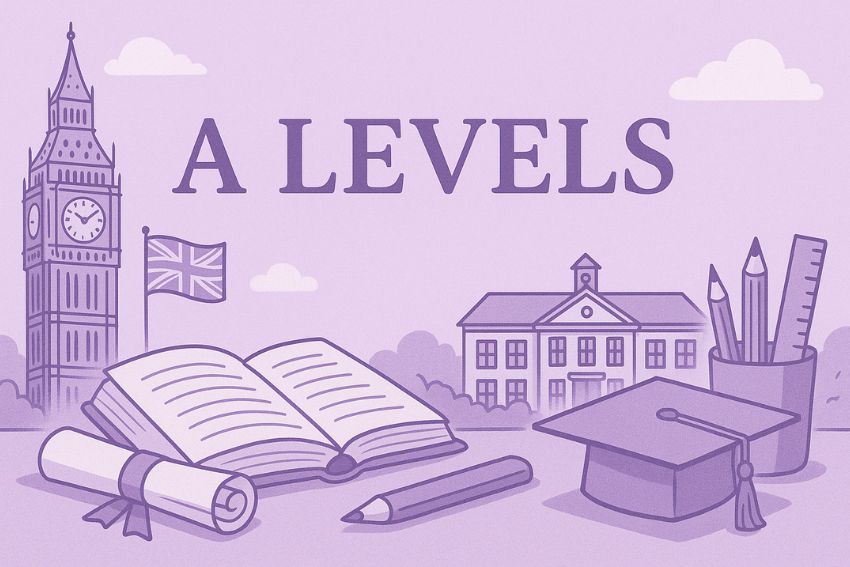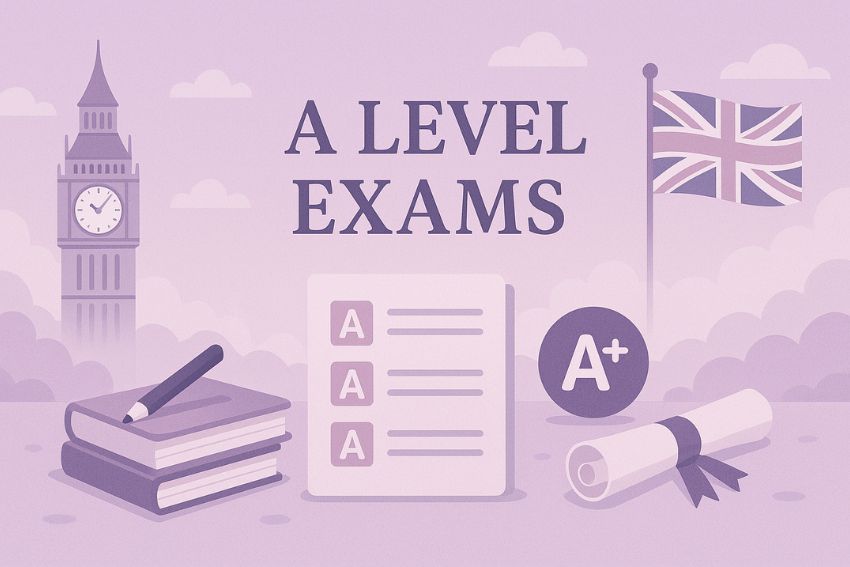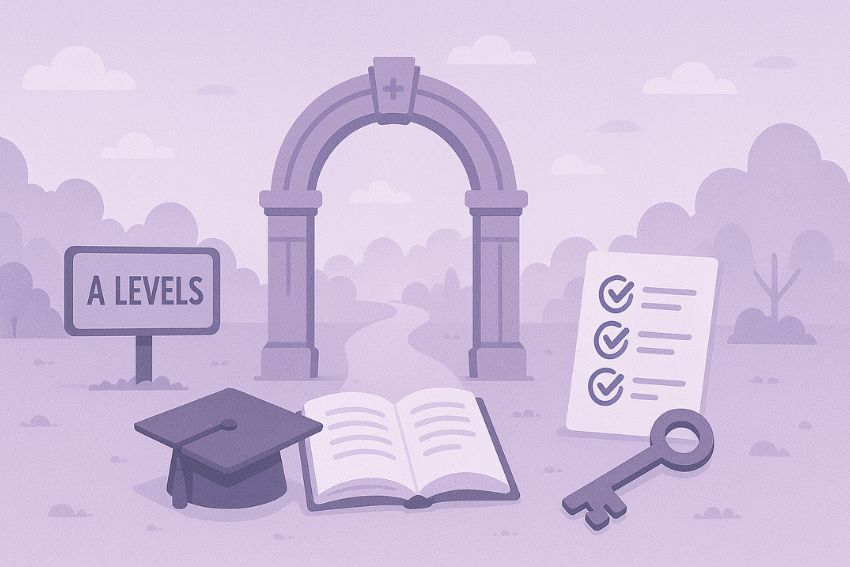What Are A Levels? Everything You Need to Know
What Are A Levels?- Advanced Levels are subject-specific qualifications offered in the UK, for students aged 16–18. These qualifications play a key role in university admissions and are -widely recognised internationally. They allow students to specialise in subjects of their choice, preparing them for higher education and future careers. This qualification is essential for students aiming to apply to leading universities and pursue specialised career paths. In the UK education system, A Level qualifications are considered a foundation for academic achievement and future progression.

What Are A Levels in the Context of UK Qualifications
A Levels play a significant part in the UK qualifications system, typically taken by students aged 16–18. After completing GCSEs, students can specialise by choosing 3 or 4 advanced level courses, that allows for more in-depth study in their chosen subjects.
When compared to other qualifications like the International Baccalaureate (IB), Advanced levels focus on fewer subjects, which provides better understanding in those areas. While IB requires students to study a broader range of subjects, A Levels allow for more focused academic development.
Both A Levels and the IB are highly approved UK qualifications, but A Levels have a long history and are widely accepted by universities for admission. Internationally, A Levels often serve as the equivalent of the IB and other advanced secondary qualifications.
How to Choose A Level Subjects
A Level subjects provide students with the opportunity to specialise in areas they are most interested in. Common A Level subjects include Maths, Chemistry, Biology, History, and English Literature, among others. These subjects allow for a comprehensive study of main academic areas, which are required for university courses and future professions.
Choosing the right A Level subjects is an important decision. Students, including adult learners, should consider their future career goals or university courses when selecting A Level options. For example, if a student wants to study Medicine, they may choose Biology, Chemistry, and Physics. If they are interested in Law, subjects like History or Politics may be more suitable.
Ultimately, a level subject options offer flexibility, giving students, including those taking A Levels for adults, the freedom to align their studies with their interests and long-term aspirations.

How Are A Level Exams Structured?
A Level exams are primarily structured around final written assessments, with some subjects incorporating coursework throughout the two-year course. These exams are designed to test the level of knowledge and skills students have gained. In most subjects, students take written tests. Others such as: Art and Design may include practical assessments or project-based work as part of the final grade. The structure and format can vary depending on the subject, which often influences how challenging students find each course.
Subjects known as the easiest A Levels, such as Sociology or Media Studies, may include more coursework and accessible content. In contrast, the hardest A Levels, like Further Maths, Chemistry, or Physics, are often exam-heavy and conceptually demanding.
In the UK, A Level exams are arranged by several exam boards, including AQA, OCR, and Edexcel. Each board offers slightly different syllabi and assessment methods, which can influence the preparation strategy for young learners. In fact, It is important for students to choose subjects that align with the specific exam board.
Popular A Level Exam Boards and How They Differ
In the UK, A Level exams are administered and marked by various exam boards, each with its own approach to syllabus design and assessment criteria. The major A Level exam boards include AQA, OCR, Edexcel (Pearson), and Cambridge International (CIE). All of boards follow the same rules for fairness, but they teach and test subject expertise in different ways.
For example, AQA is widely used in schools across England and is known for its structured content and clear mark schemes. Edexcel often includes more modular content and is popular for sciences and maths. OCR sometimes focus more on source analysis and evaluation, particularly in humanities. Cambridge International (CIE) is commonly used by international schools and offers global A Levels with slightly different paper formats and schedules.
When choosing your A Level subjects, it’s helpful to understand which exam board your school or college uses. Reviewing each board’s past papers and syllabi can give you insight into question styles and assessment methods. Which helps you define your learning approach more effectively.
A Level Assessment and UCAS Points Explained
A Levels are primarily assessed through final written exams taken at the end of the two-year course. Some subjects, such as English or History, may include a coursework component that contributes to the final grade. However, exams remain the main form of assessment across most A Level subjects.
Grades range from A* (the highest) to E (the minimum pass), with U meaning unclassified. These grades are not just academic markers, they also translate into UCAS tariff points, which are used by universities in the UK to assess applicants. For example, an A* is worth 56 points, an A is worth 48, and so on. Students typically take three advanced levels, so the total UCAS points can significantly impact university admissions.
Here’s a quick breakdown of UCAS points by grade:
How A Level Grades Convert into UCAS Points
| A Level Grade | UCAS Points |
| A* | 56 |
| A | 48 |
| B | 40 |
| C | 32 |
| D | 24 |
| E | 16 |
These points add up across all A Levels taken. For instance, a student achieving AAB would receive a total of 144 UCAS points, which could meet the entry requirements for many Russell Group universities. Therefore, performing well in A Level assessments not only boosts academic confidence but also directly affects university offers.
What are A Levels and Their Entry Requirements
What are a levels and their entry requirements? Advanced levels are a crucial step in the UK education system. To enrol in A Level courses, students typically need to have completed their GCSEs or equivalent qualifications. The minimum entry requirement usually includes a set number of GCSEs at grade 5 or above, with specific grades in subjects that align with the chosen A Level subjects.
Strong GCSE grades are important for getting into Advanced level courses, as they show students have the basic knowledge to do well. For example, a minimum grade 6 in subjects like Maths or English is often needed to take related A Levels.
A Level Equivalents: How They Compare to Other Qualification
While Advanced levels are the most traditional route into UK universities, there are several equivalent qualifications that offer alternative pathways. These qualifications vary in structure, subject breadth, and assessment style, but they are often considered alongside A Levels in university applications.
Here’s a breakdown of common A Level equivalents:
Comparison of A Level Equivalent Qualifications
| Qualification | Age Group | Focus & Structure |
| A Levels | 16–18 | In-depth study of 3–4 subjects over 2 years, exam-based |
| IB Diploma | 16–19 | Broad curriculum with 6 subjects + core components (Extended Essay, TOK, CAS) |
| BTEC Level 3 National Diploma | 16+ | Vocational and practical coursework in specific fields (e.g., Business, Health) |
| T-Levels | 16-19 | Technical qualification with classroom and industry placement (45 days) |
| Scottish Highers/Adv Highers | 15-18 | Broad curriculum similar to A Levels; more common in Scotland |
All of the qualifications listed above are accepted by UK universities, though some like BTECs or T-Levels may have specific course requirements. Each qualification suits different learning styles. A Levels are ideal for students who enjoy academic study and want to specialise. The IB Diploma is well-suited to those looking for a broader education. BTECs and T-Levels provide a more practical or technical route, often combining coursework with real-world experience. Meanwhile, Scottish Highers offer a regional alternative that still allows progression to universities across the UK.

What Can You Do After A Levels? Career and Degree Options
Completing your A Levels opens up a wide range of opportunities, whether you’re aiming for university, looking to enter the job market, or considering alternative routes. For many students, this qualification serve as the academic foundation for university entry, with most degree programmes requiring specific Advanced Level subjects and a set number of UCAS points. Carefully chosen A Level courses, especially in core subjects like Maths, Biology, or History, can significantly influence your eligibility for competitive university courses.
However, university isn’t the only path. After advanced courses, you might choose to pursue a higher-level apprenticeship, which allows you to gain industry-specific experience while earning a qualification. This route is ideal for students who prefer practical learning and want to avoid full-time university study. Some school leavers also enter employment directly, especially if they’ve studied job-relevant subjects or completed A Levels alongside vocational qualifications.
Another option is to enrol in a foundation degree or take a gap year. Popular choices for students who want to build more experience, improve their grades, or take time to explore career interests before committing to a university course.
Conclusion
In this blog, we have discussed what are a levels and their importance in shaping academic and career pathways. Advanced levels are a critical part of the education system, opening doors to higher education and specialised careers. Choosing the right A level subjects based on university goals and career aspirations is essential to success. It’s important for students to thoroughly research and select their subjects, ensuring they align with their future ambitions.
If you need extra help, online A level tutors can offer tailored guidance to help you make the most of your studies and excel in your exams.
Explore your A Level options carefully and seek support when needed. If you’re not sure about subject choices or need additional help, consider reaching out for personalised tutoring to keep progressing towards your goals.
FAQs:
What are A Levels in the UK?
A Levels (meaning Advanced Levels) are subject-specific qualifications taken by students in the UK, usually between ages 16-18. They are crucial for university admissions and provide deep knowledge in chosen subjects. Students typically take 3 or 4 subjects and are assessed mainly through exams at the end of the two-year course.
What Are the Easiest A Levels?
The perceived difficulty of A Levels can vary based on personal strengths and interests. However, subjects like Media Studies, Sociology, and Psychology are often considered less demanding in terms of content complexity and workload compared to subjects like Mathematics or Physics.
What A Levels For Law?
Most universities do not require specific A Level subjects to study Law, but having at least one essay-based subject is strongly recommended. Good options include English Literature, History, Politics, or Philosophy, these help develop critical thinking and strong writing skills. Some top universities may prefer or require A Level Law, though it’s not essential. Ultimately, aim for high grades (typically AAA–ABB) and choose subjects you enjoy and can excel in.
Is IB Harder Than A Levels?
The IB is considered more challenging than A Levels due to its broad curriculum and additional components like Theory of Knowledge (TOK), the Extended Essay (EE), and Creativity, Activity, Service (CAS). IB students must manage six subjects, while A Levels allow for a focus on three or four subjects in greater depth.
When Do A Levels Start?
A Level courses usually begin in September, right after students finish their GCSEs. The first year is known as Year 12 (Lower Sixth) and the second year is Year 13 (Upper Sixth). Most students take their final A Level exams at the end of Year 13, typically in May and June. For 2025, A Level exams are expected to start around 12 May and finish by 20 June, depending on the exam board and subject.








